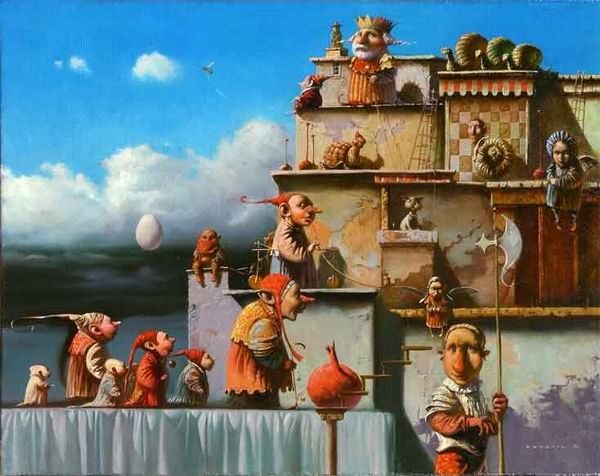
Dreaming Chess Castles in the Air?
Our idealism many times clashes with reality. Much like "castles in the air," these "ideal" scenarios can be beautiful and aspirational but might not always align with reality, leading to sort of escapism from daily life.
We saw on my blog before Don Quixote fighting the windmills with his chivalric strategies, as well as the examples of how hopes of chess players and their constructing air castles might often collide with reality.
Donald Don McLean is an American singer-songwriter and guitarist. Known as the American Troubadour, he is best known for his 1971 hit American Pie ("♫When the jester sang for the king and queen...♫")

His Castles in the Air are from his 1970 album Tapestry. It is a song that deals with themes of idealism, escapism, and the pursuit of dreams against the harsh realities of life.
The song speaks to the human tendency to dream of better, more fantastical lives or situations, "castles in the air." These dreams or fantasies serve as an escape from the mundane or difficult aspects of everyday life.
The song features McLean's signature folk-rock style with acoustic guitar, which adds to the reflective and somewhat melancholic mood of the track. One can interpret Castles in the Air as an acknowledgment of the beauty in dreaming but also a recognition of the folly or pain that comes when one must return to reality.
This song, like much of McLean's work, invites listeners to ponder their own dreams versus their realities, making it a timeless piece that resonates with those who have ever built their own "castles in the air."
 Air Castles. art by Herman Smorenburg
Air Castles. art by Herman Smorenburg
We may apply the themes of Don McLean's Castles in the Air to chess. This offers an interesting perspective on both the game and the song.
Players often have ideal scenarios or strategies they dream of executing on the chessboard. These could be perfect sequences of moves leading to a checkmate or ideal piece development. Much like "castles in the air," these strategies can be beautiful and aspirational but might not always align with the opponent's moves.
Just as the song reflects on dreams versus reality, chess forces players to adapt their strategies based on what's actually happening on the board. An ideal plan might need to be abandoned if the opponent makes unexpected moves or if one's pieces are under threat.
Applying Castles in the Air to chess thus provides a metaphor for the balance between dreaming of perfect games and the reality of playing against an ever-changing opponent, where one's dreams must adapt to the unfolding narrative of each encounter.
Thinking of any (chess) castles in the air of your own?
.
.

